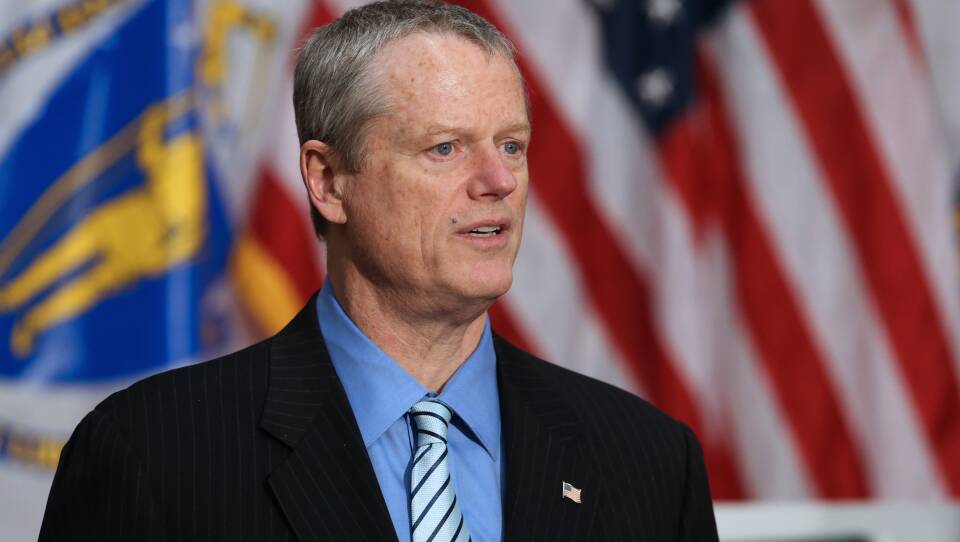Although the four largest cities in Massachusetts are listed in the COVID-19 "Red Zone," Gov. Charlie Baker says the state will continue allowing businesses to open or expand capacity as long as they operate in areas with low levels of COVID-19 transmission.
The recent coronavirus uptick may fuel anxiety, but Baker said the Commonwealth's experience to date mirrors that of other states.
"Virtually everything we talked about with respect to a reopening, step two, as part of lower risk communities, are things that have been going on in other states for a long period of time," Baker said, "without any evidence in those states that those are the things that drive spread."
In short, Baker rejected the idea that the state was opening too quickly.
About 24 hours before Baker spoke, Dr. Christopher Gill, an infectious disease specialist at Boston University's School of Public Health, told GBH News that when considering the key measures of hospitalizations and deaths, not much has changed in the state over the last week.
The governor's comments came after Boston was placed in the "red" category by the Department of Public Health, meaning the capital city is among the communities with the highest transmission of COVID-19 for the first time since the initial surge of the virus in the spring.
Boston joins more than two dozen other cities and towns with more than eight positive cases per 100,000 residents, many in cities neighboring it. The map is based on the two-week average of COVID data.
Baker announced Tuesday that communities listed as gray or green on the state's map could move into "step two" of the third phase of reopening, with event spaces allowed to host up to 250 people or 50 percent capacity, retail fitting rooms reopened and more indoor recreation spaces allowed to operate.
Baker said that the state will continue to be a national leader in testing for the virus, especially in areas at the greatest risk and colleges and universities. The implication is that aggressive testing helps officials counter spread.
"And I fully expect that we will find cases as a result of doing that. It will be the finding of those cases and the isolation and quarantining and contact tracing that's associated with that that will be our greatest weapon in stopping the spread in those communities," Baker said.
A cluster of red municipalities has formed north of Boston, with Lowell, Dracut, Methuen, North Andover, Haverhill and Middleton now listed at the highest threat level.
Baker said many of the new positive cases are from colleges and universities testing students before ordering them to quarantine and from unstructured gatherings that don't adhere to social distance protocols.
"The biggest concern we've had, other states have experienced this as well, has much more to do with those informal, no rules, no guidance gatherings that are usually a part of daily life for most people, but it's something we've had to step back from," Baker said.
Baker was at the site of the new Lechmere station in Cambridge to tout the 50 percent completion of the Green Line extension project to Medford. When the project is complete, Baker said, 80 percent of Somerville residents will be within one quarter mile of a transit stop, up from 20 percent of residents now.
"It's a huge, game-changing project. We're proud of the progress that's been made to date. I can't wait," for the opening Baker said, "at the end of next year." The project is scheduled to be complete by December 2021.






